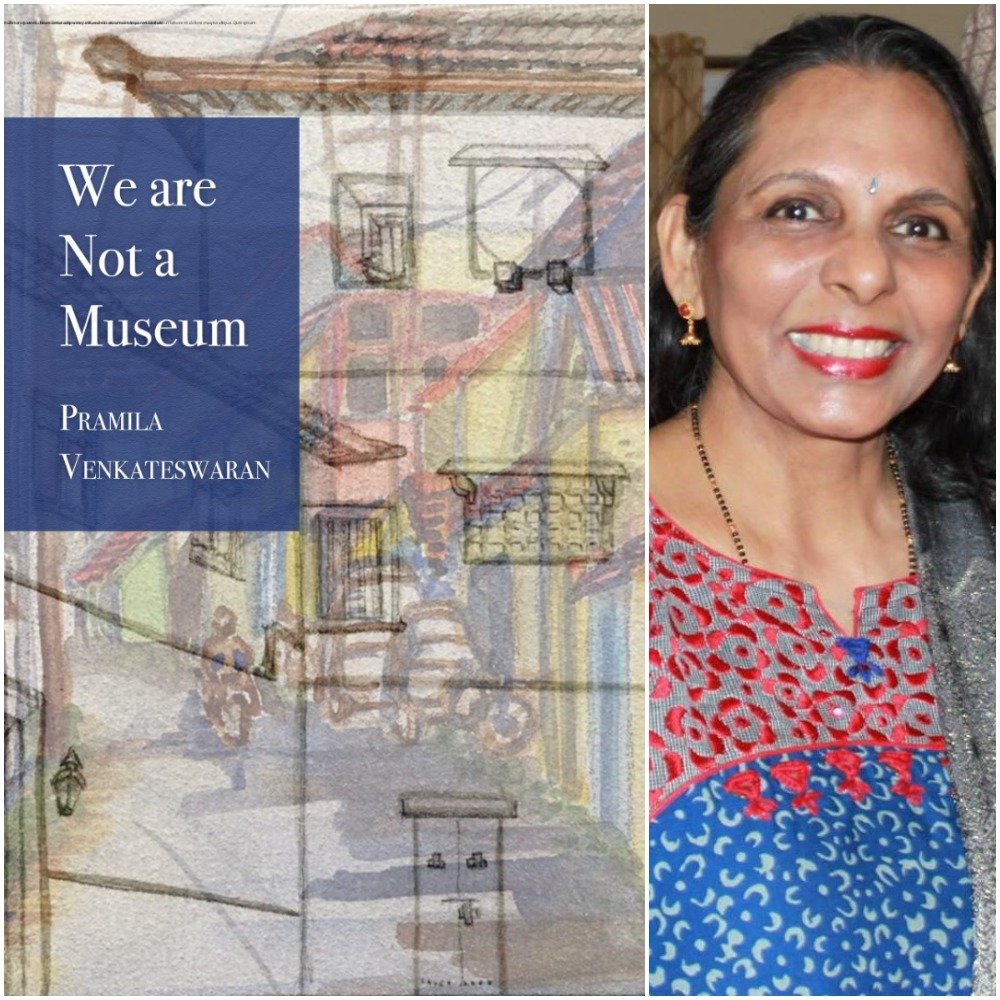REVIEW OF PRAMILA VENKATESWARAN’S WE ARE NOT A MUSEUM: THE JEWS OF KOCHI
by Amalie Flynn
Pramila Venkateswaran’s We are not a Museum: the Jews of Kochi is a stunning book of poems that embodies remembering and remembrance, forging memory for what is now unremembered. Each poem is a hand, fingers curling into the shape of a cup, cupping dirt, that soil of an ancient time and people, a people and a place I had never heard of before now.
“We’re back,
on ancient soil.
We answered the call,
hearing it
through conflagration &
the muezzin’s tune”
(excerpt from “Movement” by Pramila Venkateswaran)
Venkateswaran imaginatively recreates the lives and the land and the longing of the Jews of Kochi with roots, stem and tissue that stretch through history back to King Solomon. After India became independent (1947) and Israel a state (1948), many of the Jews of Kochi left India. Today, in Kerala, there are only a few Jews of Kochi left. But in Venkateswaran’s poems, we are pulled back to a time when the Jews of Kochi lived, and vibrantly, their days filled with fruit and fish, rain and ritual, in this town that curved itself around the coastline of the Arabian Sea.
“We learned to depend
on the lull between rains: Hailing a taxi
or huffing to the bus stop, rushing an errand
for fish or attending brit milahs
before the onslaught, plucking ripe fruit,
decaying rot. Naming, lighting the Sabbat lamps,
comforting the one whose child is lost at sea.”
(excerpt from “Double Podia” by Pramila Venkateswaran)
At the heart of Venkateswaran’s poems is movement. The movement of sun across a day, the movement of people across a continent, the movement of exile and emigration, the movement of seekers to a place, the movement of hatred, the movement of letters and language down a tongue, the movement of history and violence, the movement of clouds. In this way, her poems are spaces that the reader is invited, beckoned, to migrate into.
“We have left a door open
in Kerala: its lit interior welcomes
our mornings.”
(excerpt from “Exile” by Pramila Venkateswaran)
This is the function of poetry.
How a poem pulls a reader into it, into its chambers, like a heart, so the reader hears the beat, not just the beat of the verse, but the beat of their own hearts, to find home between someone else’s stanzas. And when that happens what is unknown or unfamiliar or forgotten becomes its opposite.
This happens in We are not a Museum: the Jews of Kochi.
I wake up in a world torn apart by war and violence, coups d’etat, the way a bomb rips a country like skin, leaving it bloody, forced migration or civilians trapped, bombs dropping, systematic starvation, and genocide. How the world today is a spinning machine spun by political murder, justified by belief systems, disparate and deadly. Yet, here, in Vankateswaran’s poems, there is something else. A time and a place where secularism bloomed and people lived side by side, peacefully intertwined. In the vibrancy and intimacy of her poems, Vankateswaran makes the ancient new, what has receded palpable, what was almost lost, found, again and again and again. And, in me, something that is a semblance of hope seeds itself, buries itself, deep inside my body, daring the skies to pour down sun and rain and to let it grow.
Amalie Flynn is a poet and the author of Silicone (Alien Buddha Press, 2024), Ripe (Alien Buddha Press, 2024), Flesh (Alien Buddha Press, 2023), September Eleventh (Middle West Press, 2021), and Wife and War: The Memoir (2013) and a collection of poetry blogs: Wife and War, September Eleventh, Border of Heartbreak, and The Sustainability of Us. Her writing has appeared in Giant Robot Poems (Middle West Press, 2024), Voices from the Front Line: The Pandemic and the Humanities (University of California Health and Humanities Press, 2024), The Alien Buddha’s Best of 2023 (Alien Buddha Press, 2023), Alien Buddha Zine #57 (Alien Buddha Press, 2023), Things We Carry Still (Middle West Press, 2023), Beyond their Limits of Longing (MilSpeak Books, 2022), American Book Review (University of Nebraska Press, 2022), Diagram: An Anthology of Text, Art, and Schematic (Del Sol Press, 2003), The New York Times, Time, The Literary Review, and The Huffington Post, and has received mention from The New York Times and CNN. Flynn serves as poetry editor for The Wrath-Bearing Tree.

